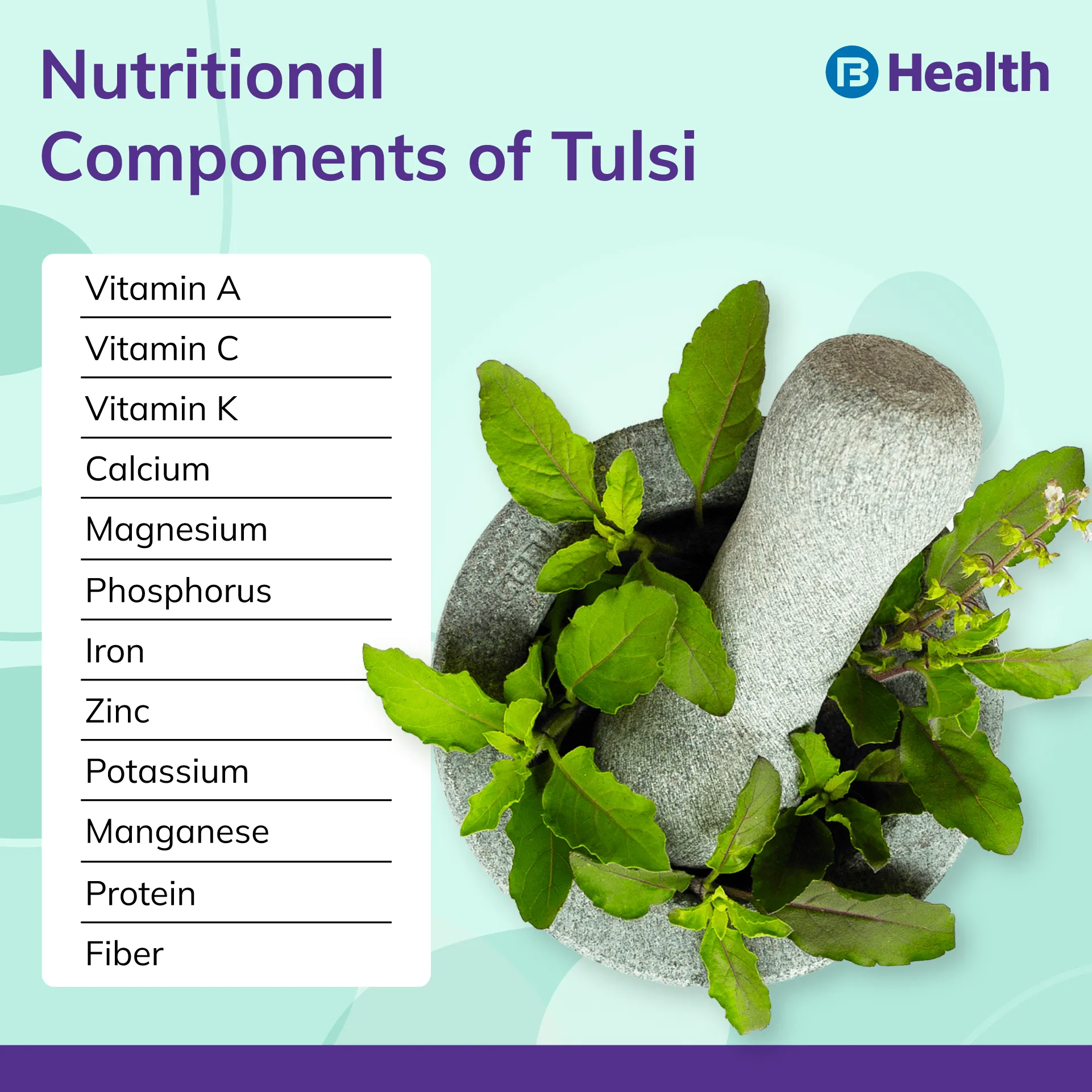TULSI NUTRITIONAL AND HEALTH BENEFITS

BY CHISOM IBEMERE
Tulsi is also called Holy Basil and is a sacred plant in Hindu culture, highly regarded for its medicinal benefits. It is a widely known herb in the family Lamiaceae
Tulsi leaves contains essential nutrients such as vitamin A, vitamin C, calcium, iron, and zinc, which are essential for maintaining overall health. They are great components of antimicrobial, antifungal, and antibacterial properties, which help to strengthen the immune system, combat infections, and reduce the risk of diseases.
Tulsi acts as an effective remedy for respiratory ailments like cough, cold, bronchitis, and asthma. It helps in relieving congestion, clearing phlegm, and soothing irritated respiratory passages.
Tulsi is considered an adaptogenic herb, meaning it helps the body cope with stress and its adverse effects. Consuming Tulsi leaves or its extract helps in reducing stress levels and promoting mental well-being.
Tulsi aids digestion by improving gut health, reducing bloating, and promoting the secretion of digestive enzymes. It also helps in relieving gastric ulcers and acidity.
The antioxidants present in Tulsi help in eliminating toxins from the body and purifying the blood, promoting overall detoxification and improving the functioning of organs.
Tulsi has hypoglycemic properties and can help in regulating blood sugar levels. It enhances insulin secretion and helps in managing diabetes effectively.
Tulsi has cardioprotective properties and helps in maintaining proper heart health by regulating blood pressure, reducing cholesterol levels, and preventing the formation of blood clots.
Tulsi possesses anti-inflammatory properties that help in reducing inflammation and pain associated with conditions like arthritis and inflammation-related diseases.
Tulsi has neuroprotective properties and is believed to promote cognitive function, improve memory, and reduce the risk of age-related cognitive
